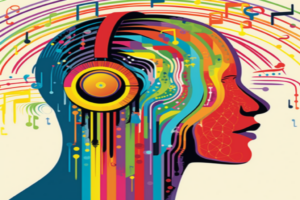Introduction:
Music has been an integral part of human culture throughout history, serving various purposes such as entertainment, communication, and expression. Beyond its artistic and emotional value, music has a profound impact on our health and well-being. Research has shown that engaging with music can enhance our mental, emotional, and physical well-being. This article explores the multiple ways in which music influences our health, including its effects on stress reduction, mood enhancement, cognitive function, pain management, and social connections.
1. Stress Reduction and Relaxation:
Music has the power to alleviate stress and induce relaxation. Listening to calming music can lower the levels of the stress hormone cortisol and reduce anxiety. Slow-tempo music, instrumental melodies, and nature sounds have been found to be particularly effective in promoting relaxation. Playing soft background music in stressful environments, such as hospitals or workplaces, can create a soothing atmosphere and enhance overall well-being.
2. Mood Enhancement and Emotional Well-being:
Music has a profound impact on our emotions and can be a powerful tool for improving mood and emotional well-being. Upbeat and cheerful music can boost happiness, while soothing melodies can evoke feelings of tranquility. Music has been shown to activate brain regions associated with pleasure and reward, leading to the release of dopamine, a neurotransmitter linked to positive emotions. Music therapy, a specialized field that utilizes music for therapeutic purposes, has been successful in improving mood and managing emotional conditions such as depression and anxiety.
3. Cognitive Function and Brain Health:
Engaging with music has numerous cognitive benefits. Learning to play a musical instrument, for instance, stimulates brain development, enhances memory, and improves executive functions such as attention and problem-solving skills. Listening to music can also enhance cognitive performance, particularly in tasks that involve spatial-temporal abilities. Studies have shown that music can aid in the rehabilitation of individuals with neurological conditions such as stroke or Alzheimer’s disease, improving their cognitive and communication abilities.
4. Pain Management and Healing:
Music has been recognized as an effective complementary therapy for managing pain and promoting healing. It can divert attention from pain, reduce anxiety associated with medical procedures, and facilitate relaxation, which can alleviate discomfort. In clinical settings, music therapy has been successfully used to manage pain during childbirth, dental procedures, and cancer treatments. Additionally, music has been shown to have a positive impact on physiological responses, such as reducing heart rate and blood pressure, which can contribute to overall pain relief.
5. Social Connections and Well-being:
Music has a unique ability to bring people together and foster social connections. Group music activities, such as singing in choirs or participating in music ensembles, promote a sense of belonging, cooperation, and shared identity. Music also acts as a universal language, transcending cultural and linguistic barriers, allowing individuals to connect on a deeper emotional level. Engaging in music-related social activities has been associated with increased social support, improved mood, and overall well-being.
Conclusion:
The impact of music on health and well-being is extensive and multifaceted. From reducing stress and promoting relaxation to enhancing cognitive function, managing pain, and fostering social connections, music has a remarkable influence on various aspects of our lives. Incorporating music into our daily routines, whether through listening, playing an instrument, or participating in group activities, can have profound positive effects on our mental, emotional, and physical well-being. So, let us embrace the power of music and allow it to enrich our lives and promote our overall health and well-being.







